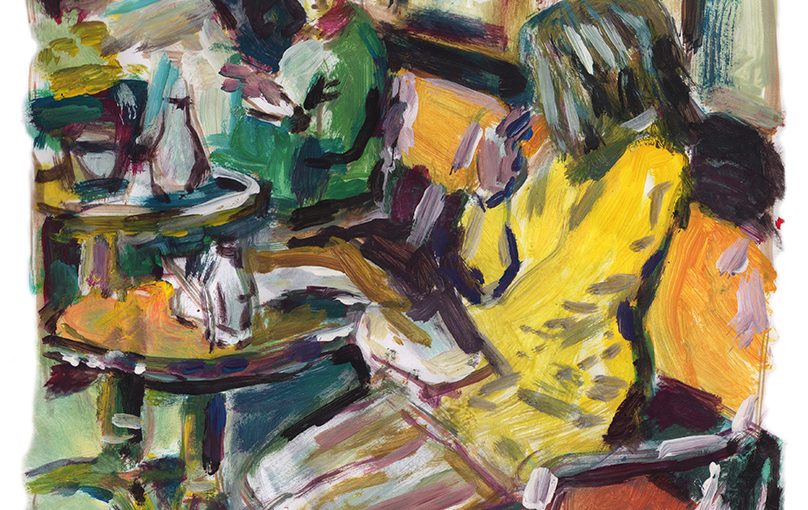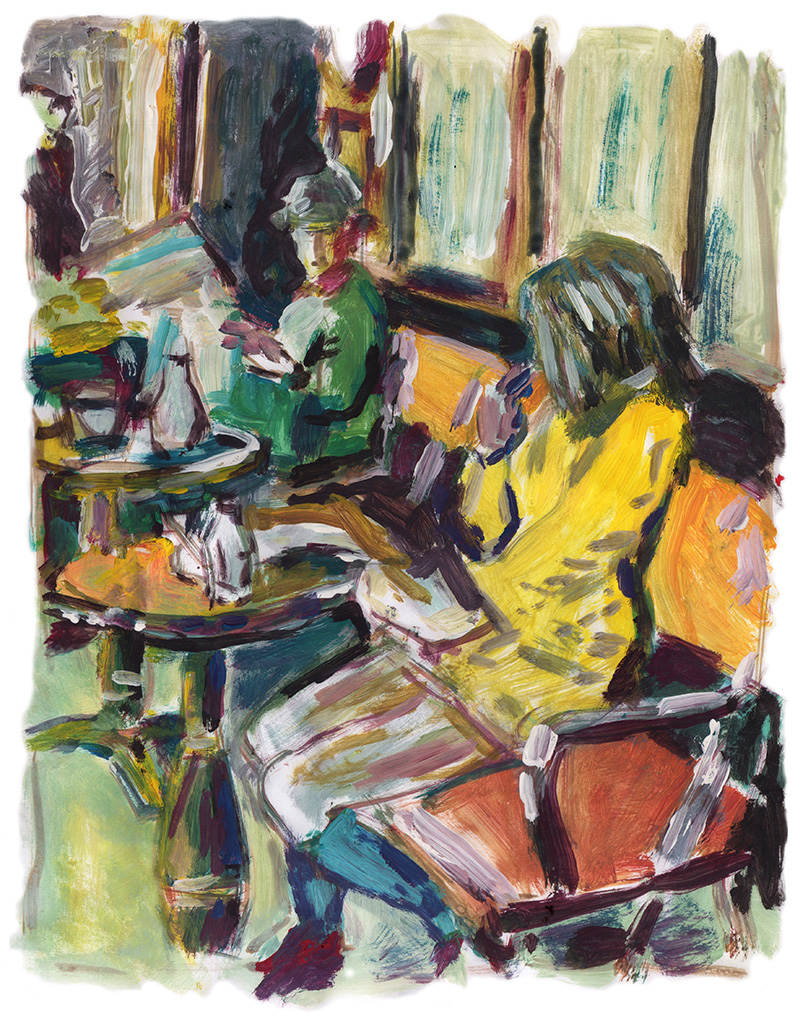It is not only the eyes of the two women that cross paths on Henri Cartier-Bresson’s photograph, but it is the artist’s own gaze that passes over the famous photograph in a journey that is at once manual, perceptive and analytical.
By studying in a pictorial key the composition of the image, the depth given by the perspective played out diagonally, and the relationships of chiaroscuro, starting from a black and white photograph, rebalanced by colour, Stefano Zago reflects on the dynamics of observation by confronting the perceptive mechanisms of his predecessor. Taking into account the physiological time needed to produce the work, the artist dives slowly and carefully into the depths of the artistic process, producing new results and unexpected discoveries.
The use of gouache, an inherently opaque paint, requires a precise choice of colours in order to effectively render areas of light and shadow.


